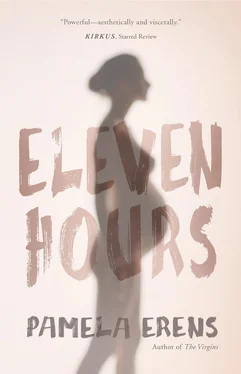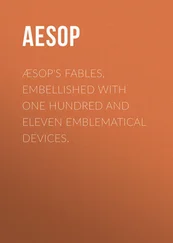Pamela Erens - Eleven Hours
Здесь есть возможность читать онлайн «Pamela Erens - Eleven Hours» весь текст электронной книги совершенно бесплатно (целиком полную версию без сокращений). В некоторых случаях можно слушать аудио, скачать через торрент в формате fb2 и присутствует краткое содержание. Год выпуска: 2016, Издательство: Tin House, Жанр: Современная проза, на английском языке. Описание произведения, (предисловие) а так же отзывы посетителей доступны на портале библиотеки ЛибКат.
- Название:Eleven Hours
- Автор:
- Издательство:Tin House
- Жанр:
- Год:2016
- ISBN:нет данных
- Рейтинг книги:4 / 5. Голосов: 1
-
Избранное:Добавить в избранное
- Отзывы:
-
Ваша оценка:
- 80
- 1
- 2
- 3
- 4
- 5
Eleven Hours: краткое содержание, описание и аннотация
Предлагаем к чтению аннотацию, описание, краткое содержание или предисловие (зависит от того, что написал сам автор книги «Eleven Hours»). Если вы не нашли необходимую информацию о книге — напишите в комментариях, мы постараемся отыскать её.
Eleven Hours
Eleven Hours — читать онлайн бесплатно полную книгу (весь текст) целиком
Ниже представлен текст книги, разбитый по страницам. Система сохранения места последней прочитанной страницы, позволяет с удобством читать онлайн бесплатно книгу «Eleven Hours», без необходимости каждый раз заново искать на чём Вы остановились. Поставьте закладку, и сможете в любой момент перейти на страницу, на которой закончили чтение.
Интервал:
Закладка:
Then her mother got sick. Multiple myeloma. Lore’s father, gone long before this: blurred images of a man in a cream-colored sweater with leather patches on the elbow. As a child, Lore liked to run her finger across the smoothness of those patches onto the coarse hairiness of the knit, shivering at the transition. The wearer of this garment disappeared by the time she was four. Apparently the three of them had once lived in a small Greenwich Village apartment, a place Lore did not remember at all. A law school student, her mother claimed. She did not say where they had met, or how; in fact she spoke of him only very rarely in a tone meant to dissuade questions. But apparently his parents, Jewish, had disapproved of her, a Catholic girl with only a tenth-grade education. When the marriage, never stable, disintegrated, Lore and her mother had gone to live with Aunt Janine in Lockport, New York. Lore remembers the arguments between the two sisters, Aunt Janine shouting and her mother hissing quietly in response, the separate stashes of flatware and glasses, her mother’s tears at night in the room that they shared and that even at four years old Lore knew Aunt Janine begrudged them (it was her son Sam’s room — Sam who now had to double up with his older brother). At some point before grade school they moved forty miles or so to Hobbes Corners, and then Lore did not have an aunt anymore. There were grandparents — Lore remembers occasional visits, both older people chain-smoking — but later, somehow, there were not. For a couple of years, Christmas presents still arrived from them: gifts that broke easily or seemed designed for a child younger than herself.
Junior year of high school: coming home to find her mother lying on the couch, having left work early and too tired to lift the remote to turn off a program in which two middle-aged men were arguing about Central Europe. Her eyes were hidden behind an unhealthy film. Days of missed work, Lore on the phone with her mother’s longtime boss begging him not to fire her, promising that they were seeing doctors, getting tests, figuring out what the matter was. Senior year: driving to chemo appointments, trying to cook food her mother would find palatable, managing the paperwork to get her her disability payments. Her mother insisting that Lore apply to college, Lore refusing. Then her mother back at work at the taxi dispatcher’s and Lore starting at Stuyvesant College, fifteen miles away. The relapse, more chemo, more treatment, more pain, more bureaucracy. Lore got her classwork done and managed to stay in school, but she never found the time to make friends, and finally it was as if she’d lost the knack of it. Four years of her mother’s illness contracted around her and squeezed her into a different shape, so that she became detached and careful, a provisional sort of person, someone who did not believe in the day after next. Then her mother was truly better, but Lore stayed close by and kept her heart free, afraid to be spirited away by some love affair or ambitious impulse — because What If?
It is coming again. The pain is signaling from a distance, beginning to press her. Lore struggles up to her hands and knees, Franckline steadying her as she rises ponderously above her own weight. “Now yell,” says Franckline. Lore takes a deep breath and holds her mouth open in a large O, to give the sound the biggest possible exit. The breath, the O, causes words to appear in her mind, and the words are Fuck you . Fuck who? It doesn’t matter. She breathes air deep into her belly, makes an O, and her mind agrees: Fuck you . She propels from her mouth a great moan that grows louder as the pain builds. When she runs out of moan she inhales again and pushes out a new voice stronger than before. Fuck you and you and you . Fuck you, fuck everyone. Fuck you all, fuck off, you millionfold little fuckers. The sound she is making is so loud that it stops up her ears. The moan and the pain run side by side, both tenacious, both insistent, but finally the pain begins to drop off and Lore lets the moan slacken a bit, too: a jog now, a trot, a walk, and then both sound and pain come to a stop.
A moment passes. Then another. Lore lifts her head. Franckline has stepped aside and is looking at her with a smile, impressed. Their eyes meet. Franckline starts to laugh heartily, and Lore laughs too.
The monitoring belt has gone on and off, on and off. It is past noon. Franckline spends time in other rooms and takes her lunch, leftovers from the pork dish Bernard made last night. He is not a man to avoid the kitchen. He gets home earlier in the evening than she does, and he likes to have it smelling of meat and vegetables by the time she arrives.
Franckline nibbles at her dish. Every bite carries a taste of rancid oil, although she knows everything in their house is fresh. It’s her, her changed body chemistry. It is time to tell Bernard about the baby. This girl in room 7, so solitary, so wary, seems a sort of warning. Franckline should not become like that, a person too shut up in herself, too frightened and proud to share her pain. There is a side of her, she knows, that gravitates in that direction, toward that pride, that aloneness. At first she had told herself she would speak to Bernard at the end of the first trimester, when the earliest risks would be over; then she wanted one more week to be sure, and now two more than that have gone by. It is wrong to keep Bernard out. But it is so terrible to speak. It is in the later weeks that the worst dangers will come: her water breaking too early, preterm labor, deformity leading to death in the womb. If she tells Bernard about the child, only to lose it, she will feel as if she has once again stolen from him the life that he should be having with her, and that he could be having with someone else. Does he sometimes regret — in a pause at his office, or while speaking to his mother on the phone — approaching a skinny and scared girl of eighteen on the steps of the Port-au-Prince Cathedral, standing between her and a different end to her story?
Just one more week, perhaps?
She packs up the rest of her lunch — that is, nearly all of it — and places the container with her name on it back in the nurses’ refrigerator. A thread of melody passes through her mind. She searches for its origin and locates it. Something one of her nieces, Karen, warbled last weekend, while Franckline and Bernard were at his older sister’s apartment. Karen, a shy, serious five-year-old, had gone away from the others to play with a doll. The little children usually sang jingles from commercials, the older ones whatever was on MTV. Karen sang a tune that had the progressions and undulations of the Caribbean in it. It was not a contemporary song but something older, something no one person had written. Who had sung it to her; where had she found it? Karen’s three older brothers and sisters lounged and roughhoused in the small rooms. Their mother swatted at them good-naturedly as they passed. Franckline stood rooted, deeply startled. It was a tune she had never heard before and one she was convinced she knew.
She would like the surprise of children, the way they bring pieces of the outer world back to you, pieces of the past, present, and future. The way they are always in a place where you cannot quite meet them.
She wipes the table with a napkin and looks at her watch. There are still fifteen minutes left on her break but she decides to return directly to Lore’s room. She is uneasy about letting the girl out of her sight for too long.
Marina catches her on her way back, beckons for Franckline to come over. “The program is locking me out again. Franckline, I swear …”
Franckline looks from the screen to the keyboard and taps a few keys. Nothing happens, so she goes into Systems and monkeys around in there. The hospital introduced a new computer system last month and there are still a lot of glitches. Franckline doesn’t know that much more about computers than the other nurses, but she’s less afraid of doing the wrong thing. Some of her colleagues seem to think that if they press the wrong combination of keys they’ll make the whole system go down, or erase an entire week’s scheduling.
Читать дальшеИнтервал:
Закладка:
Похожие книги на «Eleven Hours»
Представляем Вашему вниманию похожие книги на «Eleven Hours» списком для выбора. Мы отобрали схожую по названию и смыслу литературу в надежде предоставить читателям больше вариантов отыскать новые, интересные, ещё непрочитанные произведения.
Обсуждение, отзывы о книге «Eleven Hours» и просто собственные мнения читателей. Оставьте ваши комментарии, напишите, что Вы думаете о произведении, его смысле или главных героях. Укажите что конкретно понравилось, а что нет, и почему Вы так считаете.












